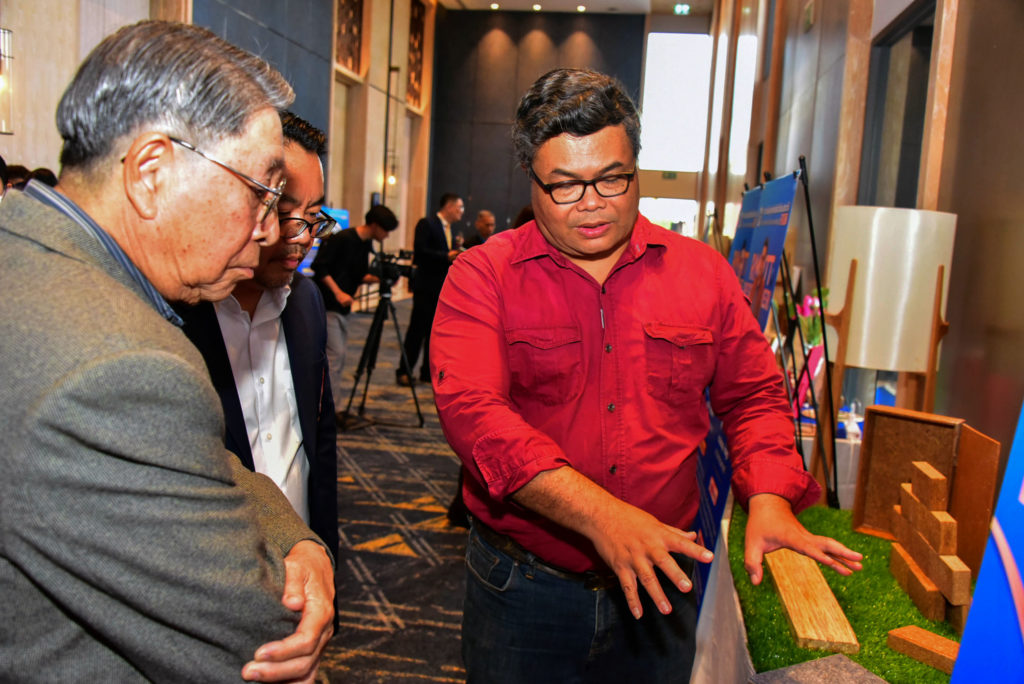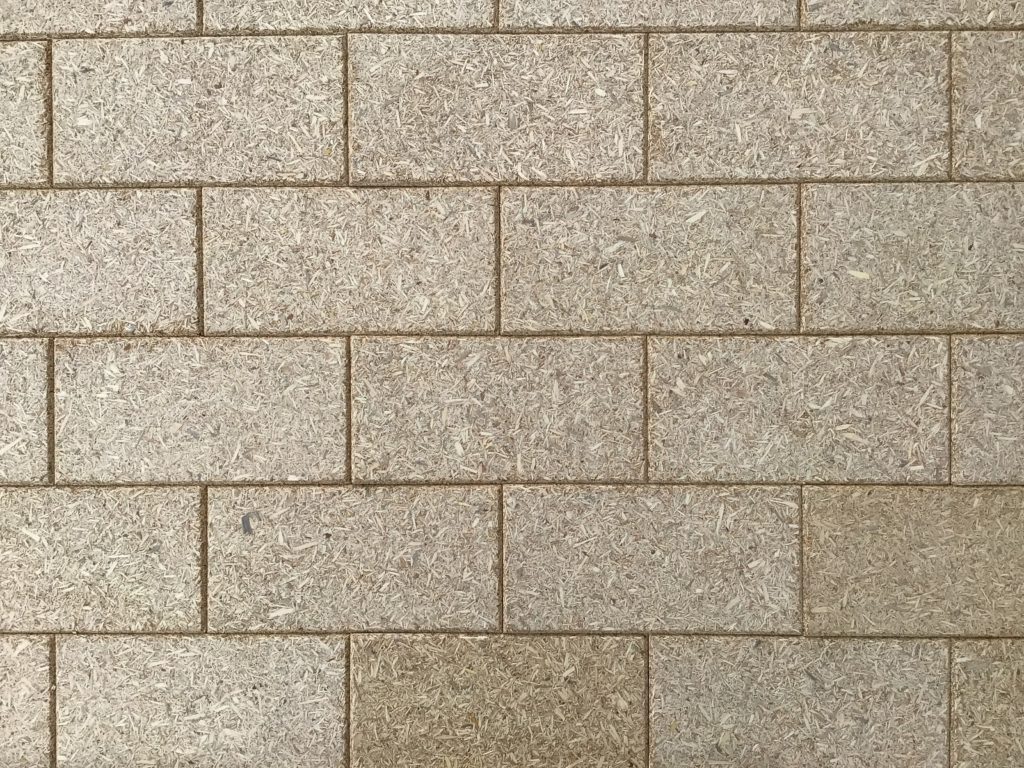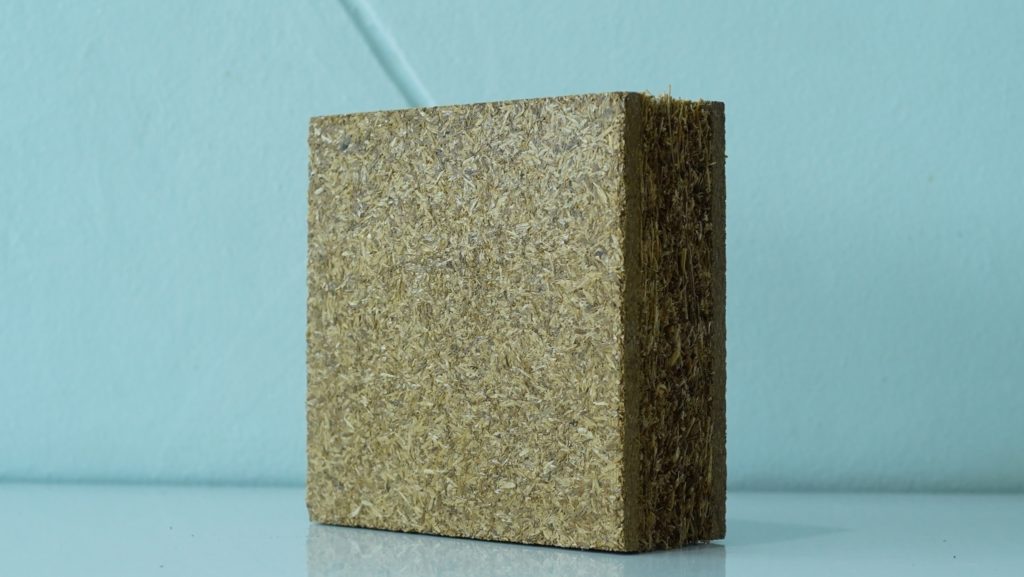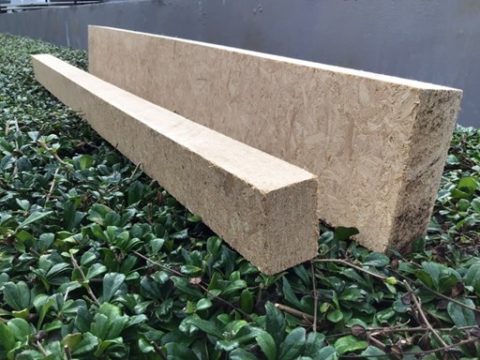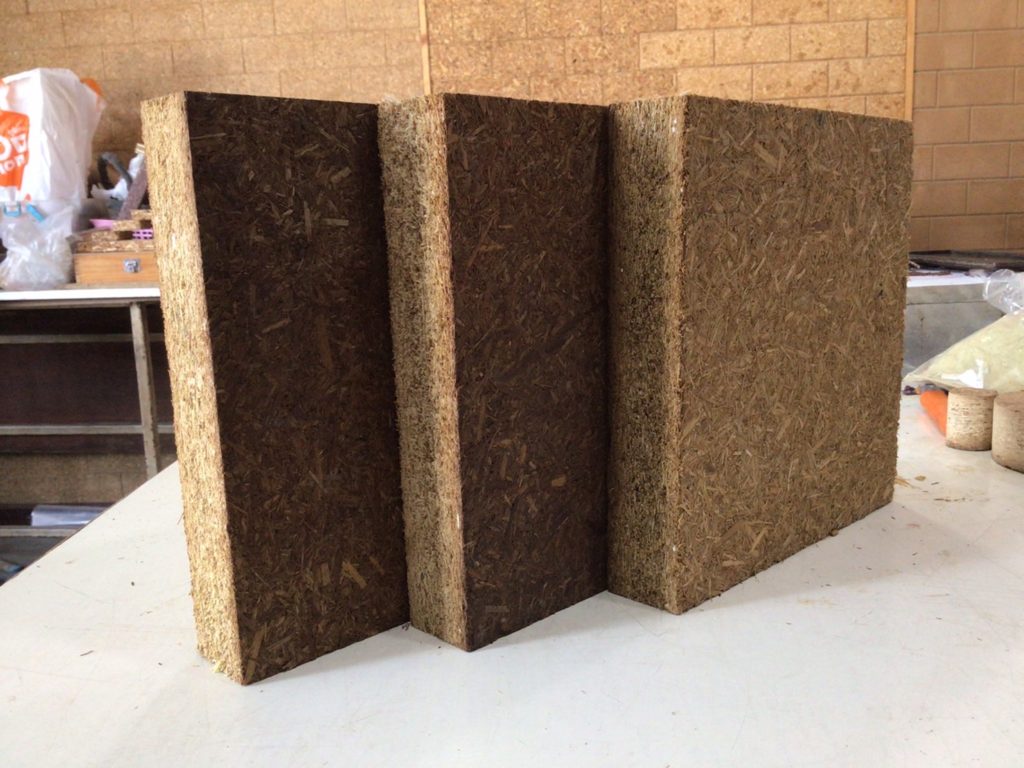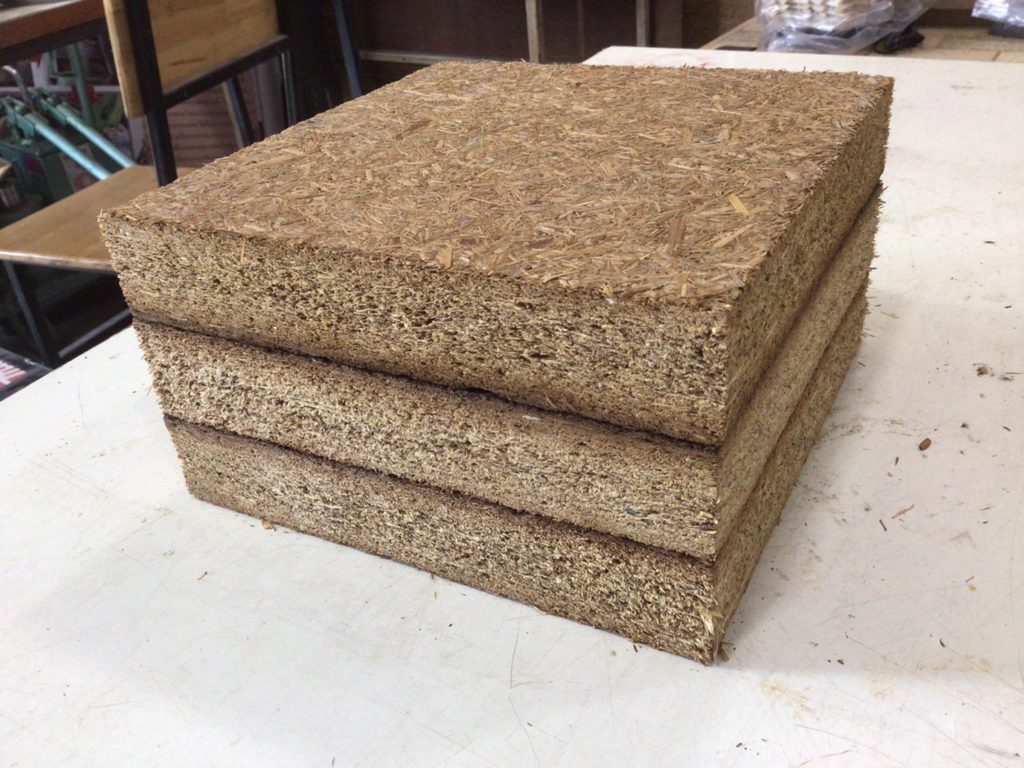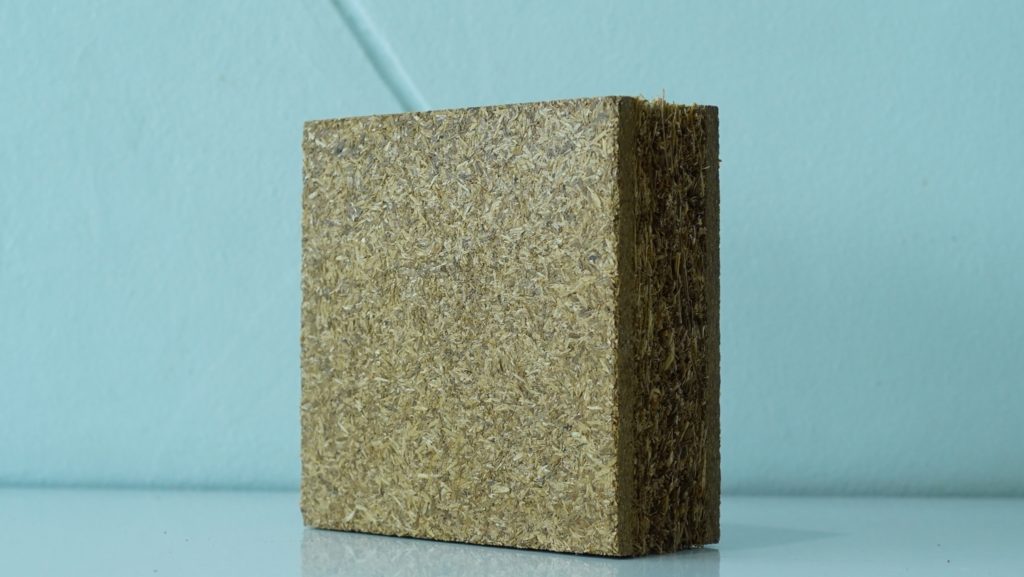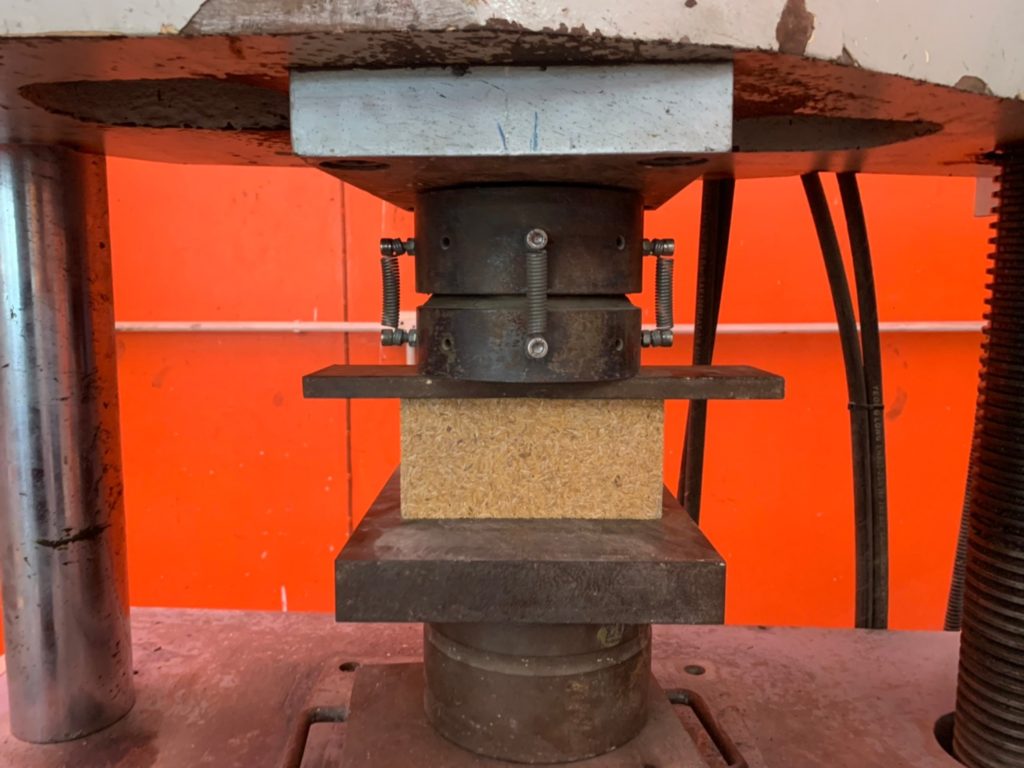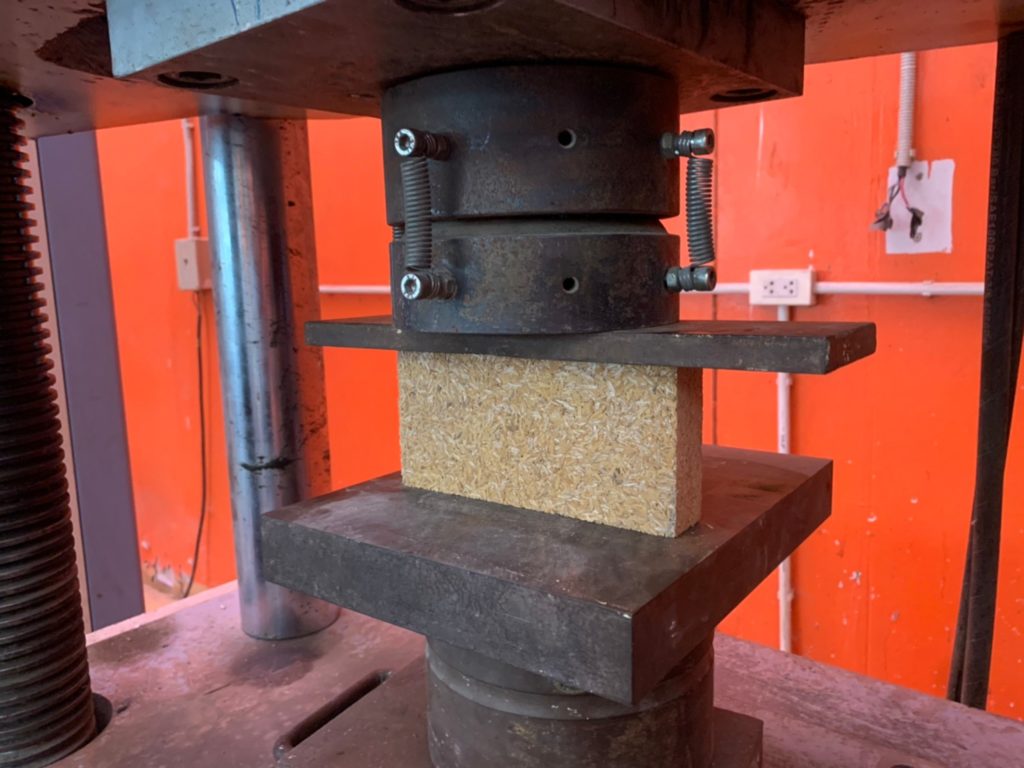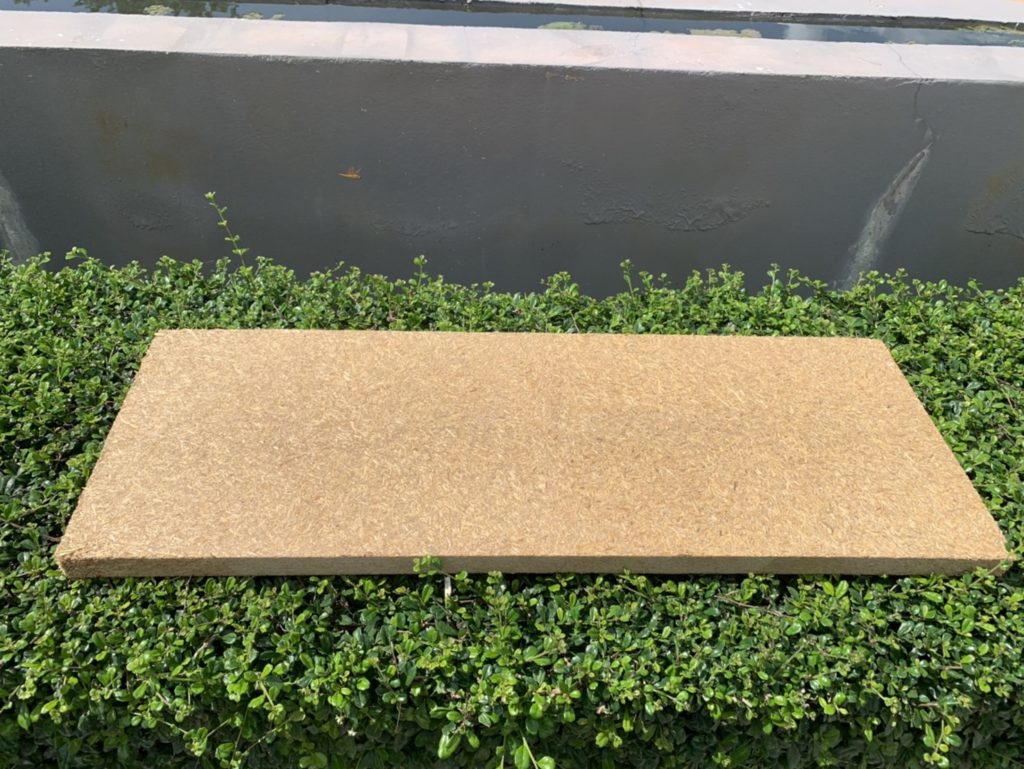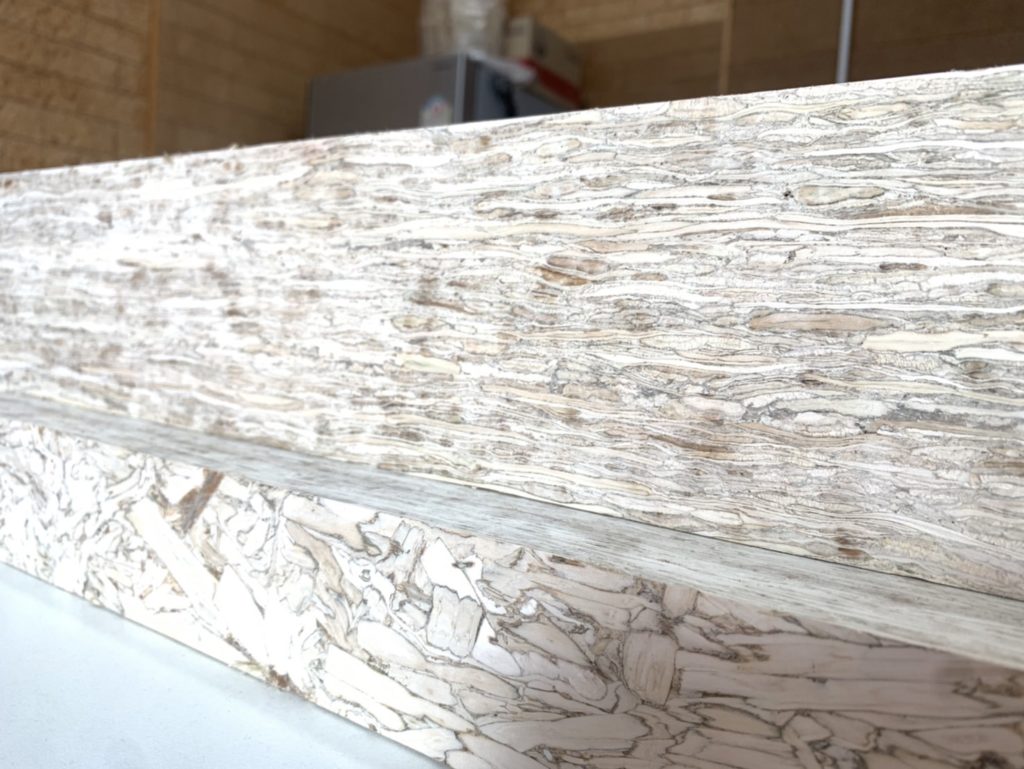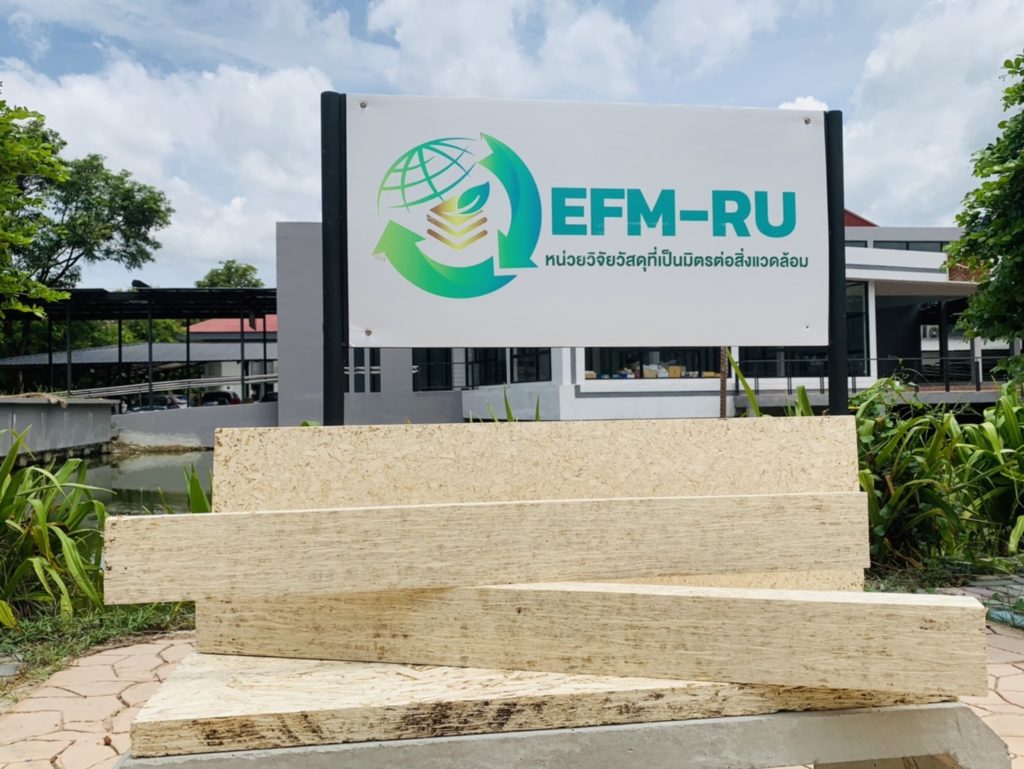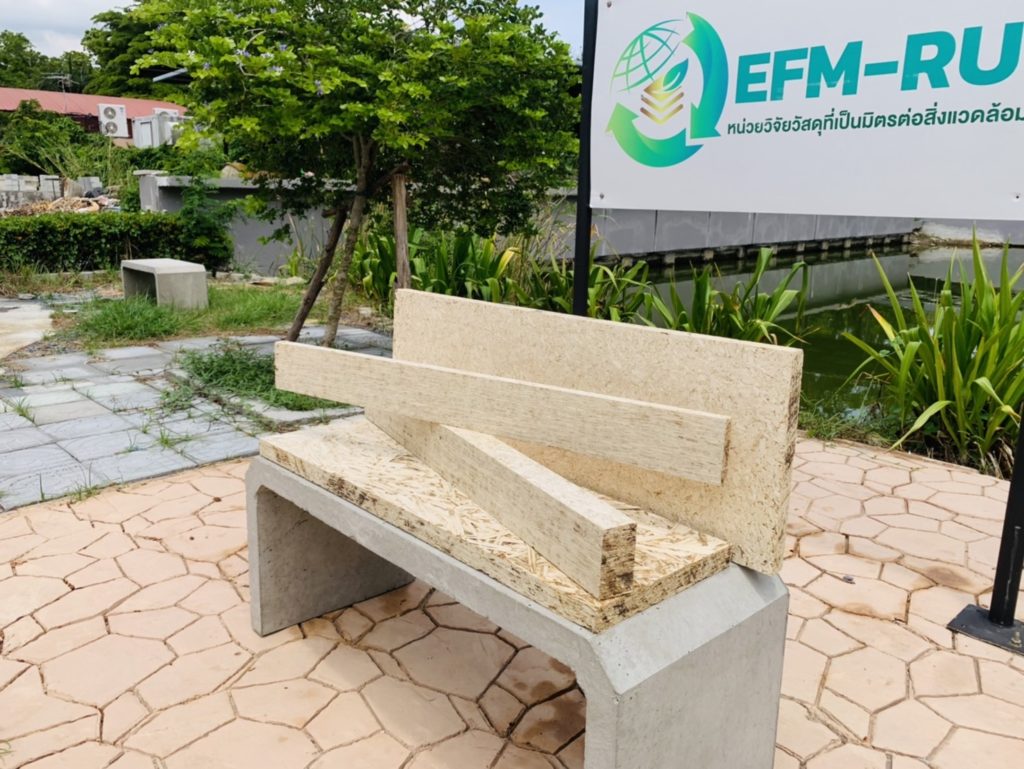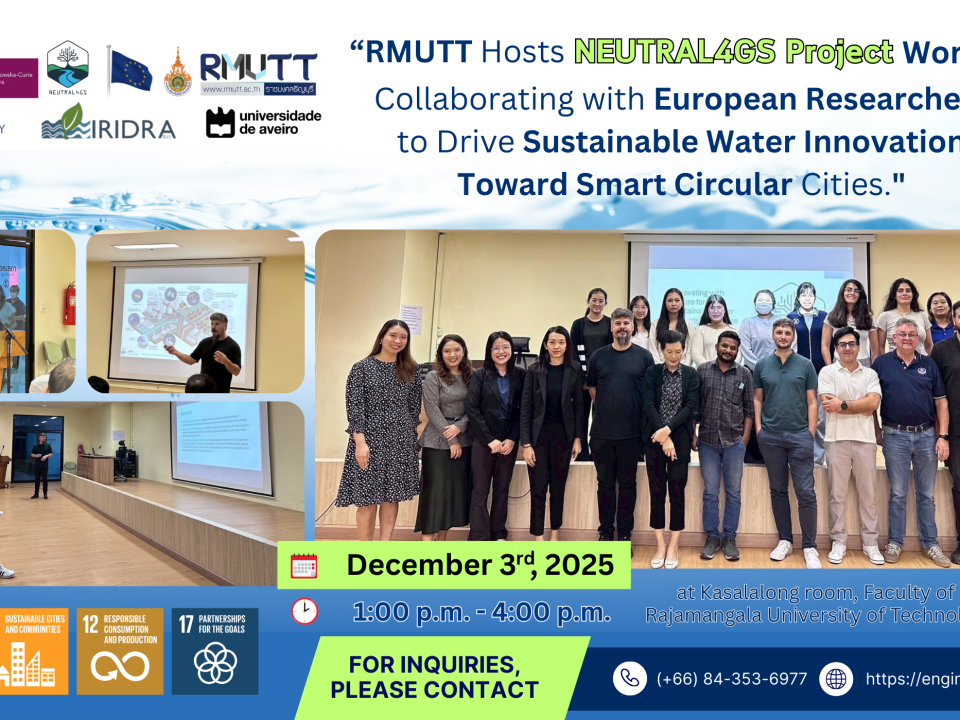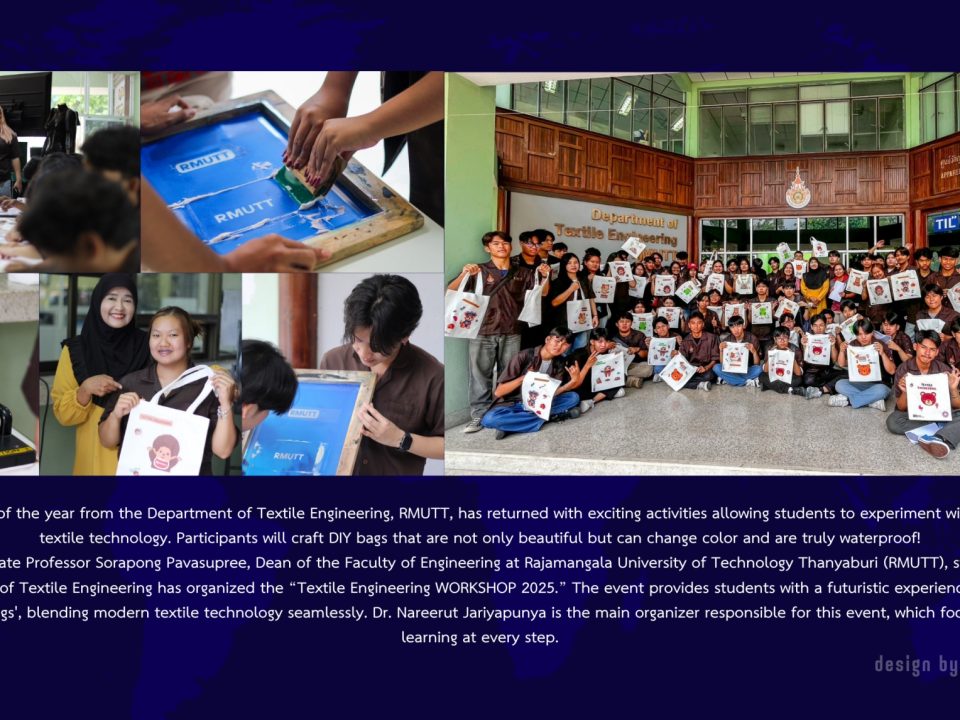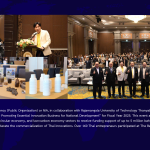
RMUTT Collaborates with NIA to Support Green Innovation Businesses, Aiding Thai Entrepreneurs in Fiscal Year 2025
11/02/2025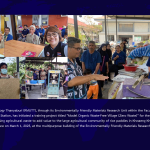
RMUTT Collaborates with Agricultural Communities to Establish a Model Organic Waste-Free Village
05/03/2025Directly from the Environmentally Friendly Materials Research Unit, Rajamangala University of Technology Thanyaburi “Innovative Bio-Compressed Materials from Agricultural Waste for Prefabricated Buildings” is the work of Assistant Professor Dr. Prachoom Khamput, a researcher and faculty member of the Faculty of Engineering. This project won the WIIPA Special Award from the World Invention Intellectual Property Associations (WIIPA) and a Gold Medal from the Association of Polish Inventors and Rationalizers at “The 18th International Warsaw Invention Show (IWIS 2024).” The work titled “BioWood: Innovative Use of Biomass for High-Performance Artificial Construction Materials,” organized by the Association of Polish Inventors and Rationalizers, took place at the Warsaw University of Technology in Warsaw, Poland.
Assistant Professor Dr. Prachoom revealed that the urgent issue of PM2.5 dust from the burning of agricultural waste needs to be addressed. Additionally, the construction industry seeks to reduce cement use due to the high carbon emissions of concrete and to develop the use of natural wood construction materials again. By using agricultural waste to produce wood substitute materials for all parts of environmentally conscious buildings, including planks, wood frameworks, wood bricks, and sandwich panels, this new innovation, which is not yet available domestically, addresses current global situations and continues to be in demand in modern markets. According to market data on wood substitute materials, Thailand is a key market of wood substitutes in ASEAN, producing the highest amount of agricultural waste-derived wood substitutes and exporting up to 50% of the production capacity, approximately 2 million cubic meters per year.”
In the production process, the innovation of biocompressed jhhhujmaterials made from agricultural waste involves developing technology for machinery to increase in size to the SME level, to support commercial production and distribution. The newly manufactured machinery can produce workpieces like plywood and sandwich panels with dimensions greater than 50 x 30 cm². The frame timbers have a length ranging from 1.00 to 3.00 meters, which is comparable to real wood products available in the market. The new machinery has a forming height of up to 50 cm before workpieces enter the machine, uses automatic hydraulic pressing with 100 tons, pressure of 20 bar, and can set machine temperatures up to 250 degrees Celsius. The production time for workpieces is about 7 to 30 minutes, depending on the thickness of the workpiece and the type of biomass used. The compression of biocomposite sheets uses agricultural waste, which is crushed to a suitable size and mixed with environmentally friendly binders, then formed with heat into pressed sheets that can replace real wood and meet construction standards. These sheets can be used in various products: plywood sheets of 30 x 30 cm² for parquet conversion, 50 x 30 cm² for ceiling panels, frame timber of 1.5 x 3 inches and lengths of 1.00 to 3.00 meters, synthetic wooden bricks of 3 x 6 x 14 cm³, and sandwich panels of 40 x 20 cm².
The products made from biocomposite materials, resembling artificial wooden components from agricultural waste, include plywood, frame timber, wooden bricks, and sandwich panels. These products can be used as components in prefabricated buildings (knockdown) for construction and decoration businesses, providing energy savings, sound insulation, greenhouse gas reduction, and environmental friendliness. Innovation in bio-compressed materials from agricultural waste is highlighted here.
RMUTT Collaborates with NIA to Support Green Innovation Businesses, Aiding Thai Entrepreneurs in Fiscal Year 2025



